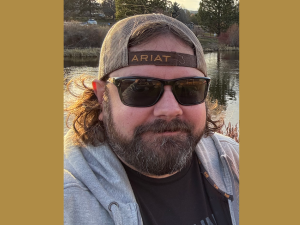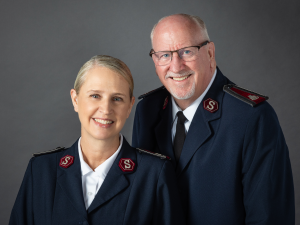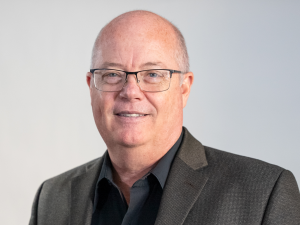Have you ever wondered what your purpose in life is, especially when everyone around you seems to be living their best life?
Ciara Laine Myers has.
For a long time, Ciara felt like an imposter in her own home and began to think something was wrong with her. She felt trapped in her own world, overanalyzing and critiquing everything she was doing.
Can you relate?
If so, Ciara’s new book, “Glasses Off: Seeking God When Your Vision Is Gone,” is for you.
An author and award-winning business owner, Ciara shares in her new book her struggles to believe that God made her for a specific purpose. But it’s a fresh take on the subject that will encourage you to shift your focus and seek God to find your purpose.
Ciara, it turns out, is just like you and me: a beautifully complicated, multi-faceted human.
And she’s here today to share the first chapter from her book, “Glasses Off.”
Listen and subscribe to the Do Gooders Podcast now. Below is a transcript of the episode, edited for readability. For more information on the people and ideas in the episode, see the links at the bottom of this post.
* * *
Skimming through shiny books in the library used to be a familiar pastime of mine. I’d glide my fingers along their polished spines, excitedly choosing one to hold, thinking, Today, this one’s for me. I’d admire the rows and rows of offerings there: The tremendous insight, years of enlightenment, and stories of heartache, possibility, and people from all walks of life. Every tongue and tribe and nation, there they were. All of the reasons I loved to read.
If you ever noticed me in a bookstore, I was the one in the far corner, most likely on the floor (admittedly barefoot and laughing loudly), getting completely lost in the text.
This season, though, if I’m honest, I dread the bookstores that I once loved, feeling numb but still somehow cynical. Rather than viewing them as sanctuaries full of quiet wonderment, I feel their coldness—like they’re looking down on me with their self-help jargon, intimidating me, daring me to try and fail.
Sadly, I’ve grown a little resentful of those books, resentful of myself, really. I could never put what I learned into practice, to live up to the text in its fullness, to become that future version of me I thought I’d be by now. Maybe my self-expectation was too high. Or maybe I wasn’t ready to hear what the authors were trying to tell me yet.
Their professional advice, it seemed, could almost always be found on opposite ends of the same spectrum. Half the writers’ words erred on the side of wonder and promise, requesting from me only what I was longing to get—hope, clarity, confirmation, direction. These books essentially told me a similar story. Over and over again they’d say, “If you could do what your Kindergarten self would want you to, what would it look like?”
My whimsical heart loved this notion, of course, but that advice didn’t prove to be all that helpful. I’m a vastly different person today than who I was at five years old.
So I continued my exploration for something profound, something relatable. I desperately needed to know how I fit into the world and, more specifically, within the context of God’s will. I spent countless hours grasping and squandering, curious to find something specific to me. I longed for a calling. I wanted to know how to do it all and how to do it all perfectly in the middle of my dog-walking, laundry-folding, email-responding life.
I yearned for validation that what I was doing was right. Because living with indecisiveness and a total lack of clarity from God felt exhausting, impossibly draining, and downright anxiety producing.
The other self-help books sounded like this: “Try not to overthink your life’s purpose.” “There’s no such thing as a calling.” “Work is a means to an end.” And while I appreciate both sides of this spectrum—from, “follow your childhood dreams,” to “a calling is overrated”—I fall somewhere between the two extremes.
So I decided to work through my newfound skepticism and confusion by writing a book of my own, a comprehensive overview of my adventure with calling, purpose, and vision as it’s been formed in my world over the years. Everything God revealed to me, I wrote down.
You can borrow the words anytime. In fact, I hope you gobble them up like a delicious cherry on top of your already existing spiritual blueprint. That’s the beauty of a story, isn’t it? It’s passed along from the writer to the reader in hopes that they will take it on as their own, wear it like a favorite jacket, and feel the same feelings the writer did.
Eventually, you put your memories into the narrative and expand it, adding characters and blurring the lines between what you’ve read and what you’ve now applied to your life.
Once this little diary of mine becomes yours for the taking, it’s only fair that you start with the deeply vulnerable and insecure parts of me, as all the juiciest diary entries begin. I’m sorry if you can relate to these four pain points that keep me from pursuing a God-given vision:
1. I pray less than I should and worry more than I ought to.
2. I expect others to feel the same convictions I do.
3. I lack discernment.
4. I let criticism, rejection, and fear cripple me.
I’ve spent plenty of time trapped inside these pain points, like a car lodged in the mud with an inexperienced driver behind the wheel hoping to get herself free, only to find that her wheels are spinning, that she’s sinking deeper in the mud now, that she’s exhausted every last ounce of her energy. I’ve overanalyzed and critiqued most things about myself: my personality, my caffeine intake, and my past decisions. And after two family fish passed away in just two years, I’m even reconsidering my pet-parenting abilities.
I’ve felt like an imposter in my own home, undeserving of the little hands that cup my face with innocence and tug on my dress with a tenderness so sweet it makes me tear up just thinking about it. I’ve spent more time dreaming about being used by God “someday” than I have putting in the work with quiet confidence that he would follow through. I’ve hidden behind the alluring pull of perfectionism, allowing myself more time to procrastinate. I’ve avoided prolonged seasons of vulnerable prayer, rationalizing that it was a waste of time when I could be pursuing something more concrete. I’ve let criticism from others crush the ambitious nature out of me. I’ve felt sorrowful amid milestones, reminders that I wasn’t living up to my potential. I mastered the art of self-loathing because it seemed, to me at least, that everyone else understood God’s plan for their lives, but I had somehow missed the memo.
Needless to say, I was stuffed to the brim with insecurities, self-inflicted insults flying out like a magician’s collection of never-ending handkerchiefs, consistently tempted to throw up my hands and admit, “It’s official. I do not have a specific vision for my life. Something needs to change.”
Without a clear vision, I knew I would spend my time on earth productively but not precisely. I would be busy, not intentional. I would bend over backward for everyone else but ignore God’s whispering request to step into partnership with him. If you’re anything like me, you crave God’s confirmation, but he seems aloof right now, distant, apathetic at best. Maybe your God-given dream remains unfinished. Or maybe you’re thinking, I’m just trying to get by, hoping to discern what this season of your life should look like.
Either way, I promise to share everything I’ve learned the hard way: biblical, practical, and psychological truths for
developing discernment inside a vision from God. I can’t promise to give you a cheat sheet or clear answers that only he can give you. And I can’t promise that this process will be an easy one for you because it wasn’t for me, and it isn’t for most.
Still, we know that “nothing in the world is worth having or worth doing unless it means effort, pain, difficulty … I have never in my life envied a human being who led an easy life. I have envied a great many people who led difficult lives and led them well.”
Additional resources:
- Read “Glasses Off: Seeking God When Your Vision Is Gone” (WestBow Press, 2023) by Ciara Laine Myers.
- How do you want to experience your life? What do you want your life to reflect? Get the Joy-Filled Toolkit now and make a plan for joy with a printable 12-week joy planner and mini-workshop podcast to help you create a season of intention.
Listen and subscribe to the Do Gooders Podcast now.












